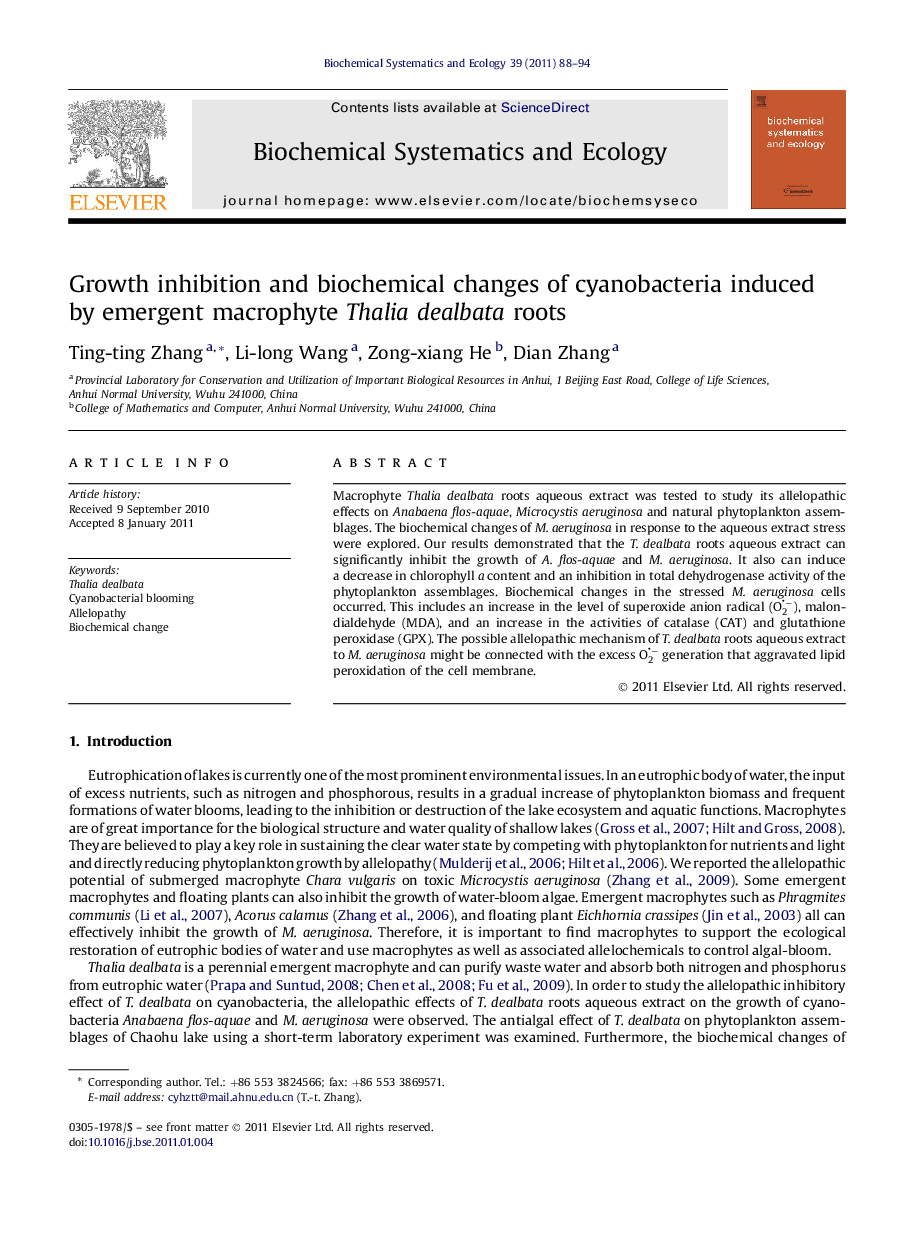| Article ID | Journal | Published Year | Pages | File Type |
|---|---|---|---|---|
| 1354339 | Biochemical Systematics and Ecology | 2011 | 7 Pages |
Macrophyte Thalia dealbata roots aqueous extract was tested to study its allelopathic effects on Anabaena flos-aquae, Microcystis aeruginosa and natural phytoplankton assemblages. The biochemical changes of M. aeruginosa in response to the aqueous extract stress were explored. Our results demonstrated that the T. dealbata roots aqueous extract can significantly inhibit the growth of A. flos-aquae and M. aeruginosa. It also can induce a decrease in chlorophyll a content and an inhibition in total dehydrogenase activity of the phytoplankton assemblages. Biochemical changes in the stressed M. aeruginosa cells occurred. This includes an increase in the level of superoxide anion radical (O2−), malondialdehyde (MDA), and an increase in the activities of catalase (CAT) and glutathione peroxidase (GPX). The possible allelopathic mechanism of T. dealbata roots aqueous extract to M. aeruginosa might be connected with the excess O2− generation that aggravated lipid peroxidation of the cell membrane.
► The aqueous extract of T. dealbata roots can inhibit the growth of some cyanobacteria. ► The aqueous extract can also inhibit the growth of phytoplankton assemblages. ► A variety of biochemical changes in the M. aeruginosa cells occurred. ► The mechanism might be the excess O2− generation and lipid peroxidation of the cyanobacteria.
